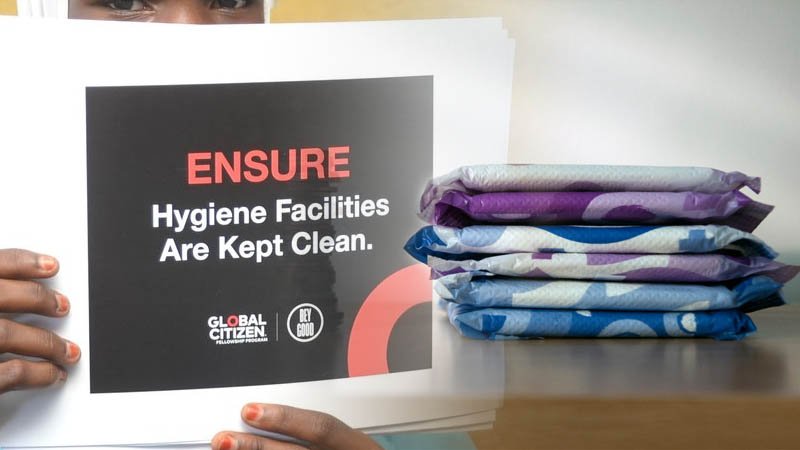A new report by the United Nations Population Fund (UNFPA) has shed light on the challenges facing by women in girls of Africa during menstruation.

A new report by the United Nations Population Fund (UNFPA) has shed light on the challenges facing by women in girls of Africa during menstruation. The report, which was released on May 25, 2023, found that lack of access to sanitary products, education, and healthcare are some of the biggest challenges, and it calls for increased investment in menstrual health programs.
The report found that one in three girls in sub-Saharan Africa misses school during their period, and that this number is even higher in rural areas. The report also found that girls and women who lack access to sanitary products may resort to using unsafe methods, such as using old rags or leaves, which can lead to infections.
“Period poverty is a major barrier to girls’ education in many parts of the world, including Africa. When girls can’t afford menstrual products, they are often forced to miss school, which can have a devastating impact on their education and their future. We need to do more to address this issue and ensure that all girls have access to the menstrual products they need to stay in school,” told Dr. Bela Ganatra, Senior Technical Adviser for Water, Sanitation and Hygiene at UNICEF.
The report calls for increased investment in menstrual health programs, including programs that provide access to sanitary products, education, and healthcare. The report also calls for the elimination of the stigma and discrimination that girls and women face because of their period.
The report is a call to action for governments, businesses, and individuals to work together to address the challenges facing menstrual health in Africa. By working together, we can help to ensure that all girls and women have the opportunity to reach their full potential.
In a previous study sponsored by the Bill and Melinda Gates Foundation found that 65% of women and girls in Kenya were unable to afford pads, and only 32% of rural schools had a private place such as toilets for girls to change their period pads.
Menstruation is a critical issue for women and girls in Africa. The lack of access to menstrual hygiene products, the stigma surrounding menstruation, and poor sanitation infrastructure can all have a significant impact on the lives of women and girls.
Lack of access to menstrual hygiene products
One of the most pressing challenges facing women and girls in Africa is the lack of access to menstrual hygiene products. In many parts of the continent, menstrual hygiene products are either unaffordable or unavailable. This can lead to a number of problems, including:
Infection
Women and girls who use cloth or other makeshift menstrual pads are at increased risk of developing infections, such as urinary tract infections and reproductive tract infections.
Discomfort
Women and girls who do not have access to adequate menstrual hygiene products may experience discomfort and pain during their periods.
Absenteeism from school and work
Women and girls who are unable to manage their periods due to lack of access to menstrual hygiene products may miss school or work. This can have a negative impact on their education and employment opportunities.
Stigma surrounding menstruation
Menstruation is often stigmatized in many African cultures. This can lead to women and girls feeling ashamed of their periods and afraid to talk about them. This stigma can make it difficult for women and girls to get the information and support they need to manage their periods safely and effectively.
Poor sanitation infrastructure
In many parts of Africa, there is poor sanitation infrastructure. This can make it difficult for women and girls to find a clean and private place to change their menstrual pads or dispose of used menstrual products. This can lead to further health risks, such as infections.
The report suggests the ways to improve menstrual health in Africa, including:
Providing access to menstrual hygiene products
Governments and organizations can work to make menstrual hygiene products more affordable and accessible to women and girls in Africa. This can be done through subsidies, tax breaks, and other initiatives.
Breaking down the stigma around menstruation
Education and awareness campaigns can help to break down the stigma around menstruation and promote a more open and positive dialogue about this natural bodily function.
Improving sanitation infrastructure
Governments and organizations can work to improve sanitation infrastructure in Africa. This can make it easier for women and girls to find a clean and private place to change their menstrual pads or dispose of used menstrual products.
The report is a valuable resource for anyone who is interested in learning more about the challenges facing women and girls during menstruation in Africa. It is also a call to action for governments, businesses, and individuals to work together to address these challenges.